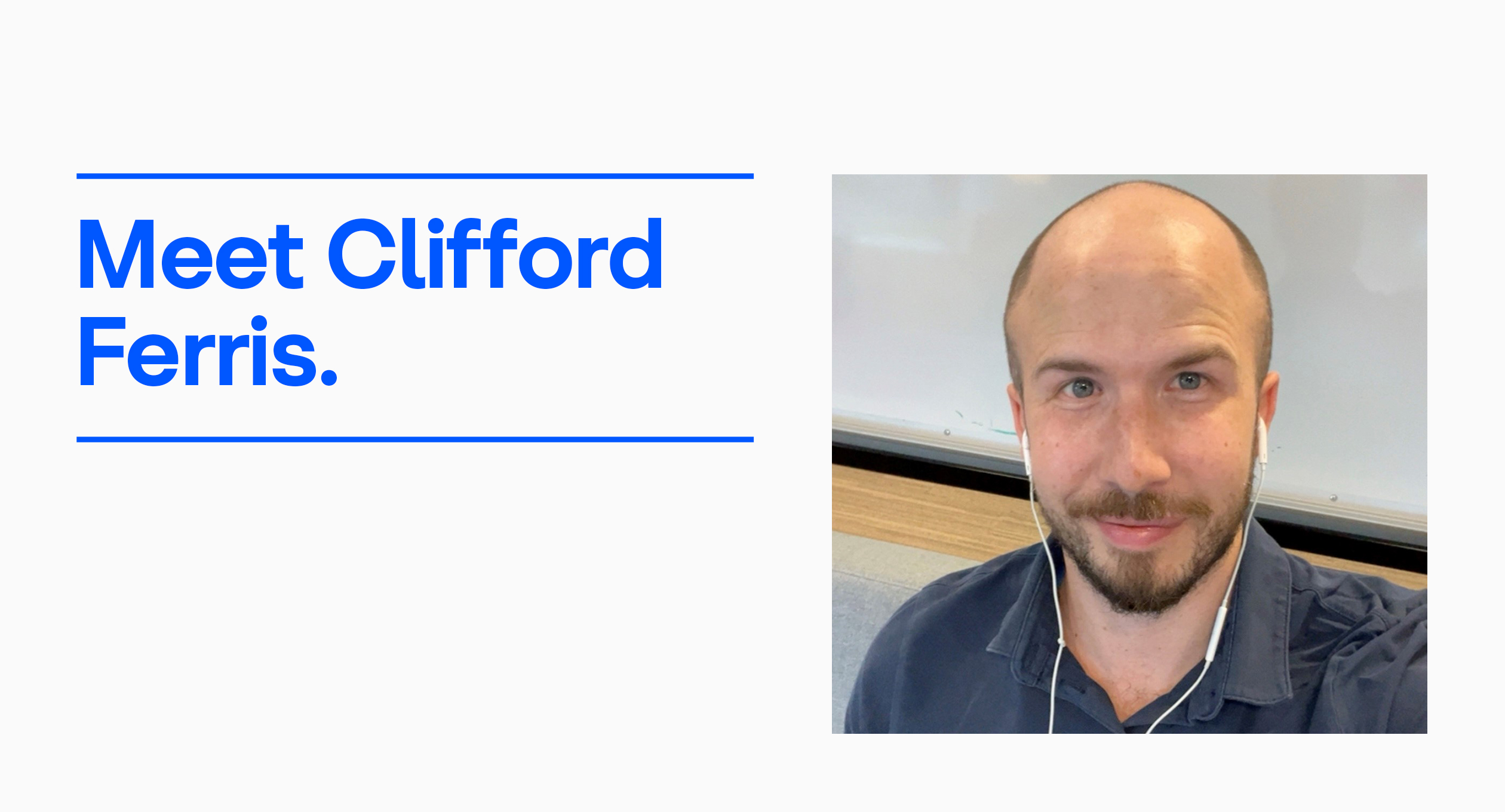October is National Disability Employment Awareness Month, a chance to increase awareness and advance equal opportunities for people with disabilities. In Canada, one in five, or 3.2 million workers experience some form of disability.1 Last year, the unemployment rate among persons with disability remained higher (7.6%) compared to those without disability (4.6%).2
Each week in October, we’ll profile a member of DisAbility at Coast, our employee resource group (ERG). This volunteer employee-driven network raises awareness and acceptance by organizing workshops, hosting guest speakers, and holding panel discussions.
1 From Statistics Canada. Labour force status of persons with and without disabilities aged 15 years and over, by age group and gender. March 2024.
2 From Statistics Canada. Labour market characteristics of persons with and without disabilities, 2023. June 2024.
Meet Clifford Ferris (He/His), an administrator in network operations
Why did you join the ERG?
The DisAbility ERG has been one of the main reasons why I enjoy working at Coast. Everyone involved in the ERG continues to raise awareness to anyone who may not see what’s going on. The work we do helps make the workplace more accessible and I receive good energy from volunteering and making a change.
What inspires your work on this topic?
I grew up in Saskatoon, Saskatchewan, and moved to Vancouver about eight years ago. I’ve always enjoyed helping in the community. My mom was a big influence. I grew up with her taking me along whenever she volunteered or worked with different committees in the community. I’ve worked with different types of people including those struggling with the accessibility side of work who needed encouragement and support. Since living in Vancouver and joining Coast Capital, I’ve been able to meet lots of people and continue to advance awareness of accessibility at work. Outside of Coast, I volunteer at Blind Beginnings, an organization that seeks to change people’s perceptions of what it means to be blind.
What misconceptions and beliefs do people have about disabilities (both in and outside of workplaces)?
Someone with a disability is capable of doing a job like anyone else. We just need to have patience and give them a chance. They are very motivated to show you what they can do. Everyone deserves to be part of the community because we all bring something special. Each person offers a different experience, and this builds a strong foundation both inside and outside of work.
************************************************************
Coast Capital takes a person-first approach to disability. We understand that disability is complex. It reflects an interaction between the person and the society in which they live. Physical and non-physical workplace barriers can limit an individual’s full and equal participation.
A disability can occur at any time in a person’s life. Some people are born with a disability while others develop a disability later in life. It can be permanent, temporary, or episodic. Disability can steadily worsen, remain the same, or improve. It can be very mild to very severe.
Coast Capital’s definition of disability builds upon how disability is defined in the Accessible Canada Act. It demonstrates that disabilities are socially constructed. Disabilities emerge from the relationship between the individual and society. At Coast Capital, this definition reminds us that it is our responsibility to remove barriers for persons with disabilities because barriers are created and reinforced by the ways we think and act as a society.



